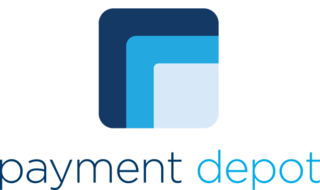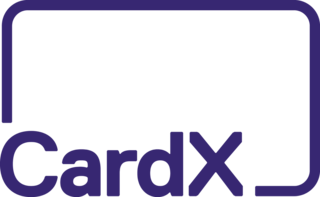8 Best Credit Card Processing Companies
No matter what type of business you own, there’s a good chance that many of your customers want to pay by credit card. To help you find the best credit card processor for your company, we reviewed the best credit card processing companies and put together a guide with everything you need to know about accepting credit card payments.
Our Top Picks for Best Credit Card Processing Companies
The companies listed below are ordered alphabetically.
- CardX: Best for zero-cost processing
- Chase Merchant Services: Best for fast deposits
- Clover: Best for robust POS software
- Helcim: Best for volume-based discounts
- National Processing: Best for low transaction fees
- PayPal: Best for range of accepted payment types
- Square: Best for small businesses
- Stax: Best for subscription-based pricing
Best Credit Card Processing Companies Reviews
- No credit card processing fees for merchants
- Fee-free option for customers
- Not available in Connecticut or Massachusetts
- Limited hardware options
- Customers may balk at paying fees
Why we chose it: CardX passes the full cost of credit card transactions to your customers, so you’ll keep more of your profits. You’ll only pay for debit card processing.
CardX is a zero-cost credit card processor, meaning that it passes 100% of the credit card processing fee to the customer. When your customer checks out with a credit card, whether in person or online, they’ll receive a notification that they’re being charged an extra 3% to cover the cost of processing. If they pay by credit, you’ll receive 100% of the transaction amount.
If the customer doesn’t want to pay the fee, they can choose to pay by debit. CardX will charge you 2.91% to cover debit card processing fees. There are no monthly fees for using CardX processing, but you’ll have to pay $29 a month to use the web-based virtual terminal if you’ll be manually entering payments taken by phone or mail.
If you plan to accept in-person payments, you can choose from two card readers: the Dejavoo QD2 mobile wireless or the Dejavoo QD4 countertop device. Funds will be transfered into your bank account in one business day. At this time, CardX zero-cost processing is not available in Connecticut or Massachusetts.
- Monthly Cost
- $0
- Transaction Fees
- 0% for debit; 2.91% for credit
- Pricing Model
- Zero-cost
- Deposit Speed
- 1 business day
- No monthly fees
- Fast deposits
- 24/7 live customer support
- Limited hardware options
Why we chose it: Sales made by 8 p.m. EST will be deposited to your bank account that night, Sunday through Friday, including holidays. Sales made on Saturdays will be deposited the next morning.
Chase utilizes a flat-rate pricing model with no monthly fees. You’ll pay 2.6% plus $0.10 per card-present transaction. Chase offers two card reader options. The basic card reader accepts taps, swipes, dips and keyed-in cards and costs $49.99. It can be used with the Chase mobile app. The Smart Terminal costs $399 and comes with POS software. It allows you to search transactions, issue refunds and more.
Chase credit card processing integrates with most e-commerce platforms. You can also use your computer as a virtual terminal to accept payments by phone and mail. When you use Chase Merchant Services, you’ll gain access to real-time analytics through Chase Customer Insights. Live customer support is available 24/7.
- Monthly Cost
- $0
- Transaction Fees
- 2.6% plus $0.10
- Pricing Model
- Flat-rate
- Deposit Speed
- Same day
- Fast deposits
- Wide selection of card readers
- 24/7 live phone support
- Industry-specific POS software
- Monthly fees for all POS packages
- Hard to compare options online
Why we chose it: Clover offers four POS software options to fit a wide range of business needs. You can take in-person orders and manage pickups and deliveries with its Table Service Restaurant software and manage returns and exchanges with its Register software — among other capabilities.
Clover lets you mix and match software and hardware to find the solution that best suits your business needs. There are four software packages to choose from. Essentials is Clover’s basic plan that integrates with your online store, tracks sales in real time and more. All Clover POS software comes with payment acceptance, inventory tracking, bookkeeping integrations and more.
With Essentials, you’ll pay 2.6% plus $0.10 per transaction. Table Service Restaurant and Counter Service Restaurant are specifically designed for food service businesses with a processing rate of 2.3% plus $0.10. With Register POS software, you’ll pay 2.3% plus $0.10 per transaction. The software integrates with scales for weighted purchases, tracks cost by item and manages customer returns.
Clover sells five card reader systems that work with its credit card processing service. Hardware costs range from $49 to $1,799. You can pay for your device upfront or break the cost down into monthly payments. It can be difficult to compare options on Clover’s website because hardware and software are shown as bundles. Funds are usually deposited into your bank account the next day. Clover’s customer support is available by phone 24/7.
- Monthly Cost
- $14.95 - $114.85
- Transaction Fees
- 2.3% plus $0.10 or 2.6% plus $0.10
- Pricing Model
- Flat-rate
- Deposit Speed
- One day for most deposits
- No monthly fees
- Low transaction fees for high-volume businesses
- Waived chargeback fees if business wins the dispute
- Up to two business days for funds transfers
- Phone support during scheduled hours only
Why we chose it: Helcim’s interchange plus pricing model automatically adjusts the margin you pay per transaction based on your company’s volume of credit card sales. The more you do in credit card sales each month, the less you pay for processing.
Helcim utilizes an interchange plus pricing model that charges you what the banks and credit card companies charge, plus a margin that varies based on your monthly credit card sales volume. As your sales increase, Helcim automatically decreases the transaction fees you pay and always lets you know the margin you’re being charged. There are five volume-based transaction rates with companies, on average, paying 1.94% plus $0.08 per card-present transaction. You’ll never pay monthly fees.
Helcim offers a basic card reader as well as an all-in-one terminal that includes a built-in receipt printer. Helcim charges $15 for chargebacks but waives the fee if you win the dispute. You also won’t be charged a fee when providing returns to customers. Live phone support is available 10 hours a day on weekdays and eight hours a day on weekends.
- Monthly Cost
- $0
- Transaction Fees
- 1.94% plus $0.08 (average)
- Pricing Model
- Interchange Plus
- Deposit Speed
- Within 2 business days
- Low transaction fees
- Free card reader
- Wide selection of plans to choose from
- Monthly fees with all plans
- Up to three business days for funds transfers
- Two- to three-year contracts
Why we chose it: National Processing uses an interchange plus pricing model to deliver low transaction fees, starting at 0% plus $0.05. If your company processes at least $10,000 in monthly sales, National Processing guarantees it will beat your current rates and will pay you $500 if it can’t.
National Processing offers seven different plans for different industries and with various price points. Plans for restaurants, in-person retail stores, e-commerce shops and nonprofits cost $9.95 per month and have transaction fees ranging from 0.12% plus $0.06 for nonprofits to 0.29% plus $0.15 for e-commerce businesses. National Processing also offers an Automated Clearing House Plan (ACH) and two subscription-based plans.
Funds are usually transferred to your bank account in one to three business days. National Processing plans require two- to three-year contracts, and there’s an early termination fee of $495 or $595 unless your business closes or National Processing can’t meet a competitor’s price. All plans come with a free card reader and free reprogramming of your existing equipment to integrate with National Processing’s service.
- Monthly Cost
- $9.95+
- Transaction Fees
- 0.12% plus $0.06 - 0.29% plus $0.15
- Pricing Model
- Interchange Plus and Subscription
- Deposit Speed
- 1-3 business days
- Funds transfer to your PayPal account within minutes
- No monthly fees
- Ability to integrate with most e-commerce platforms
- Ability to accept over 20 different currencies
- Phone support during scheduled hours only
- Only two credit card readers available
Why we chose it: PayPal credit card processing lets your customers pay any way they want, whether they’re purchasing something online or in person.
With PayPal, your customers can use credit cards, debit cards or digital wallets. They can also make a payment using PayPal or Venmo or choose to pay in installments through PayPal Pay Later. For online sales, customers can pay through PayPal or Venmo without having to enter credit card information. In-person customers can scan a QR code to pay directly through their PayPal or Venmo account. PayPal also supports over 20 different currencies.
Among its many services, PayPal offers credit card processing with no monthly fees and a flat rate of 2.29% plus $0.09 per card-present transaction. You can process sales by phone or mail using PayPal’s web-based virtual terminal or in-person using PayPal’s card reader or terminal. PayPal credit card processing also integrates with several e-commerce platforms.
If you have a PayPal Business account, you’ll receive deposits to your account within minutes of making a sale and can then transfer the money to your bank account or use it straight from your PayPal account.
- Monthly Cost
- $0
- Transaction Fees
- 2.29% plus $0.09
- Pricing Model
- Flat-rate
- Deposit Speed
- Within minutes to PayPal account
- No monthly fees
- Live phone support
- No chargeback fees
- Affordable card readers
- Funds transfers can take up to two business days
Why we chose it: Square credit card processing is easy to set up and offers a simple flat-rate pricing model that keeps costs low for small businesses. Plus, you’ll get free fraud and chargeback protection to keep your company secure.
Square’s credit card processing service is affordable with no monthly or set-up fees and a flat 2.6% plus $0.10 per transaction rate for card-present transactions. All accounts come with free fraud protection that monitors for suspicious activity and chargeback protection so you won’t have to deal with your customers’ banks or pay fees for disputed claims. Funds are deposited to your bank account within one to two business days.
Square offers a selection of card readers ranging from a free magstripe reader to an all-in-one terminal that accepts all card payments and prints receipts. You can contact Square customer support by phone, live chat, email and social media.
- Monthly Cost
- $0
- Transaction Fees
- 2.6% + $0.10
- Pricing Model
- Flat-rate
- Deposit Speed
- 1-2 business days
- No markup on processing fees
- Ability to integrate with most POS systems
- 24/7 support
- Monthly fee
- Up to three days for funds transfers
Why we chose it: Stax offers small businesses a subscription-based plan starting at $99 per month. Stax doesn’t add any markup to the interchange fees charged by banks and credit card companies, so your transaction costs will be low.
Stax’s subscription-based pricing model can benefit high-volume businesses by keeping transaction-based fees low. You’ll only pay what the credit card companies and banks charge Stax for processing payments. Monthly subscription fees start at $99 for companies with annual revenues up to $250,000. If your company makes between $250,000 and $500,000, you’ll pay $199 a month. Customized pricing is available for higher-revenue businesses.
Stax credit card processing works with several different credit card readers, including the Clover Flex and the Dejavoo QD2. Payments are typically deposited within one to three days. If you need access to your funds faster, you can purchase an optional paid add-on that ensures your funds will be deposited the next day, including weekends and holidays. Customer support is available 24/7.
- Monthly Cost
- $99+
- Transaction Fees
- Varies
- Pricing Model
- Subscription + Interchange fees
- Deposit Speed
- 1-3 days
Other credit card processing companies we considered
The companies listed above are not your only options for credit card processing. Here are two additional companies you might consider for your card-processing needs.
Merchant One
- 98% approval rate
- 24/7 phone and email support
- Free credit card reader
- No live chat support
- Limited pricing information on website
Merchant One provides customized credit card processing packages. It approves 98% of business owners who apply, even those with less-than-perfect credit. We didn’t select Merchant One as one of the best credit card processing companies because it requires contracts and charges early termination fees. You’ll also need to call to get a quote because there’s no live chat support and detailed pricing information isn’t available on the website.
QuickBooks Payments
- Fast deposits
- Automatic syncing with QuickBooks accounting software
- Free mobile POS app
- Limited customer support hours
- Must have a QuickBooks Online or Desktop account
QuickBooks Payments is a credit card processor for QuickBooks users that accepts most payment types, including credit cards, debit cards and Apple Pay. Funds transfer the next day and sales automatically sync with your QuickBooks accounting software. Monthly fees vary depending on which type of QuickBooks account you have.
While this credit card processor has useful features, it didn’t make the cut for our top list because you need to be a paying QuickBooks customer to use the service and the processing fees are on the higher side, starting at 2.9% plus $0.25.
Credit Card Processing Companies Guide
Credit card companies and banks charge per transaction and this cost gets passed on to credit card processing companies. This is known as the interchange fee. Processing companies then pass this cost to you along with an extra fee, called a margin, so they make a profit. They can do this using several different pricing models, including:
- Subscription-based: Subscription-based plans typically charge you a set monthly fee and then you pay a low processing rate per transaction, usually the same amount that the credit card companies charge the processor.
- Flat-rate: Companies that use flat-rate pricing charge every merchant the same fee regardless of what the transaction actually costs the processor. The flat rate is usually made up of a percentage of the sale plus a set amount.
- Interchange plus: With interchange plus pricing, the processor charges you the interchange rate plus a margin fee, meaning that the rate varies and you often end up paying less than you would with flat-rate pricing because it better reflects the actual cost-of-sale.
Of course, a company’s pricing model and fees shouldn’t be your only consideration. Look for a company that offers live customer support. And if you’ll need quick access to your funds, take deposit speed into consideration as well.
You’ll also want to look for a company that offers the best POS system and software to meet your company’s needs and the right credit card reader if you take payments in person. For guidance in choosing the right device, check out the best credit card readers for small businesses.
What is the average credit card processing fee?
Average credit card processing fees vary greatly depending on the pricing structure and the amount of credit card sales your business processes. Subscription-based plans have the lowest processing fees. Average card-present transaction fees for flat-rate and interchange pricing models are about 2.3% plus $0.10. Rates increase for keyed-in and online transactions.
How to set up credit card processing for your business
Each credit card processing company handles setup a little differently. You’ll have to apply online or by phone and get approved before you can get started, and then set up an account with the processing company. For in-person sales, order a credit card reader — often available for sale or lease through the credit card processing company. The credit card reader will connect to an app or POS software provided by the company.
If you plan to do a lot of in-person sales, look for one of the best tablet POS systems for a streamlined checkout process. For payments made by mail or phone, set up a virtual terminal so your computer can accept credit cards through a website. For online sales, you’ll need a payment gateway, which is offered by most credit card processing companies. If you already have an online store or website, you can integrate the payment gateway with your existing site. If you don’t, many credit card processing companies give you the option of building an online store.
How does credit card processing work?
Credit card processing requires quite a few steps, most of which take place behind the scenes.
- The customer swipes, dips or taps their card, or you or the customer enter the card information.
- The credit card and transaction information goes to the credit card processor, which sends the information to the appropriate credit card network, like Visa or American Express.
- The credit card network determines which bank issued the card and passes along the credit card and transaction information to that bank.
- The bank determines if there are sufficient funds to cover the transaction and how likely the transaction is to be fraudulent.
- The issuing bank lets the credit card network know whether to approve or deny the transaction.
- The approval code is communicated to the processor and the processor sends it to the credit card terminal.
- The funds are transferred from the issuing bank to the credit card processor and then to your account.
Why is credit card processing important?
Credit card processing is important because many customers like to pay by credit card for convenience and to access rewards from the best credit cards. Processing a credit card sale requires secure communication between banks, credit card networks and terminals in just seconds. Credit card processors facilitate this communication while protecting your customers’ sensitive financial information.
Credit Card Processing Companies FAQs
Is it secure to use credit card processing companies?
Are credit card processing companies better than traditional banks?
How long is the average waiting period for credit card payment processing?
What do I need to use credit card processing?
If you're using credit card processing for your e-commerce site, you'll need to make sure the processing software integrates with the selling platform you use. To process payments by phone or mail, you'll need a computer or other mobile device that you can use as a web-based virtual terminal. Many credit card processing companies offer virtual terminal programs. Before deciding on a credit card processor, find out if it includes a virtual terminal and if using it will cost you extra.
To accept credit cards in person, you'll need a credit card reader. Many credit card processing companies sell card readers that work with their processing services. Some will even give you a basic card reader for free if you use their processing services. If you already have a card reader that you'd like to keep, look for a credit card processing company that integrates with your device or will reconfigure it for free.
How We Found the Best Credit Card Processing Companies
When searching for the best credit card processing companies, we considered numerous factors, including:
- Cost: We looked at all the costs associated with each credit card processing company, including monthly fees, processing rates and equipment costs. We included companies that use different pricing models, so there’s a processor on the list to fit the needs of almost any type of business.
- Deposit speed: When your business makes a sale, you want access to your funds as soon as possible. Having quick access to your funds allows you to pay your employees, vendors and bills on time, so we gave preference to companies that transfer your money quickly.
- Customer support: Many businesses today operate around the clock and if you have a problem with your credit card processing service, you don’t have time to wait around for support. We looked for companies with responsive customer service that’s available whenever you need assistance.
- Hardware and software: We searched for credit card processing companies that offer the equipment and POS software or apps that will help you run your business successfully.
Summary of Money’s Best Credit Card Processing Companies
- The companies listed below are ordered alphabetically.
- CardX: Best for zero-cost processing
- Chase Merchant Services: Best for fast deposits
- Clover: Best for robust POS software
- Helcim: Best for volume-based discounts
- National Processing: Best for low transaction fees
- PayPal: Best for range of accepted payment types
- Square: Best for small businesses
- Stax: Best for subscription-based pricing
- CardX: Best for zero-cost processing
- Chase Merchant Services: Best for fast deposits
- Clover: Best for robust POS software
- Helcim: Best for volume-based discounts
- National Processing: Best for low transaction fees
- PayPal: Best for range of accepted payment types
- Square: Best for small businesses
- Stax: Best for subscription-based pricing











